Sundance 2022 Preview: Hot Docs Seeking Distribution Deals Aim For A Repeat Of ‘Flee’

In an ideal world, documentary filmmaker Alex Pritz would be bundled up in Park City, Utah right around now, preparing to unveil The Territory at the Sundance Film Festival.
But with the festival forced to go virtual for the second straight year — a concession to the persistent Covid-19 pandemic – he must content himself with discussing the film over Zoom. Whether Sundance unfolds online or in person, he insists, it remains the premier place to launch.
More from Deadline
“It’s just an insane dream come true to be able to put this film out at Sundance. It’s the best festival in the world,” Pritz tells Deadline. “I couldn’t think of a better home, especially for a film like this that was made independently and with so much love and with such dedication from a huge group of people.”

Sundance
The Territory, playing in World Cinema Documentary competition, tells the dramatic story of efforts to protect a section of the Brazilian rainforest that is home to the indigenous Uru-eu-wau-wau people, whose territory faces constant invasion by land grabbing “settlers.” Sundance takes on critical importance for a film like Pritz’s, because it’s an acquisition title vying for attention, and a sale.
“We are looking and hoping and eager and excited,” Pritz admits. “We’ve got big plans, but as of yet, no distribution.”
Pritz and nonfiction filmmakers like him can take comfort in the experience of Flee, the documentary directed by Jonas Poher Rasmussen that premiered at last year’s virtual edition of Sundance. Neon acquired Flee during the festival and it has gone on to become one of the favorites for the Academy Award.
Along with The Territory, these are some of the top acquisition documentaries that could make a big splash at Sundance:
Nothing Compares [World Cinema Documentary Competition]
The documentary about Irish singer Sinéad O’Connor, directed by Belfast-native Kathryn Ferguson, focuses on a five-year period, 1987-1992, tracing O’Connor’s “rise to worldwide fame, and how her iconoclastic personality resulted in her exile from the pop mainstream.” Production company Field of Vision notes the film “reflects on the legacy of this fearless trailblazer, through a contemporary feminist lens.”
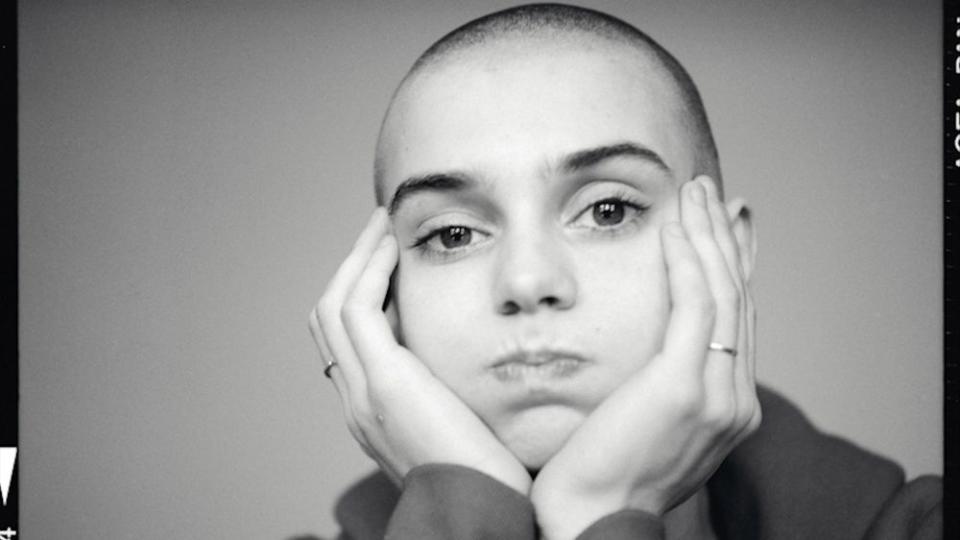
Sundance Institute/Courtesy of Andrew Catlin
Nothing Compares takes on added poignancy with the death earlier this month of O’Connor’s 17-year-old son Shane, whose funeral was held on Saturday. The singer indicated on social media that her son had taken his own life. She reportedly was admitted to the hospital days after his death, but was released in time to attend her boy’s funeral.
The Mission [World Cinema Documentary Competition]
Tania Anderson makes her feature documentary debut with a film about four American teens, members of the Church of Jesus Christ of Latter-Day Saints, who go on a religious mission to Finland. The young people are following in a long tradition of spreading the word of the Mormon faith around the world, but proselytizing in the Scandinavian country poses particular challenges.
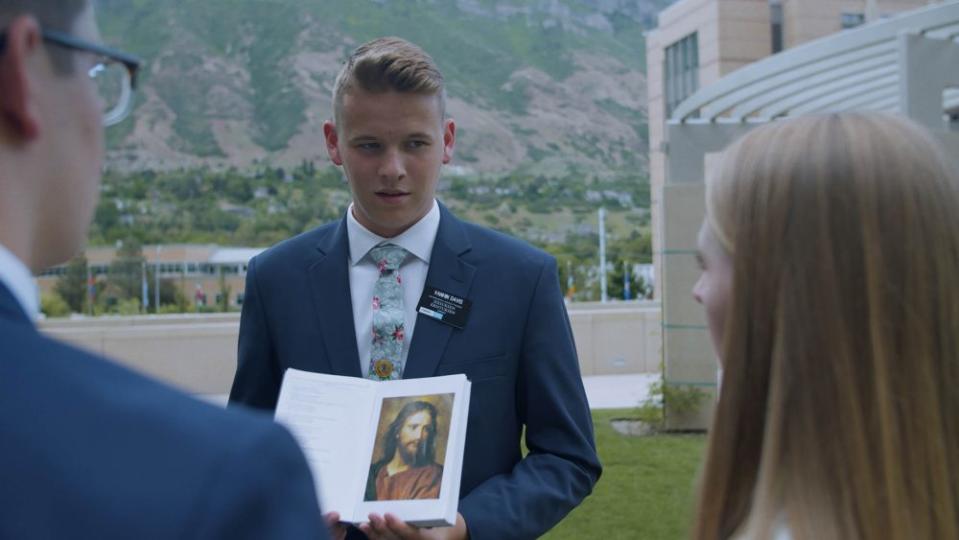
Courtesy of Sundance Institute/photo by Antti Savolainen
“[Fins]… are arguably the most private and skeptical and non-religious people in the world,” Anderson observes in a “Meet the Artist” video for Sundance.
As a first time filmmaker, premiering at a festival is all new to Anderson, as is taking meetings with potential buyers.
“This is the first time I’m doing this thing, and it’s all like, ‘What the heck!’” she tells Deadline. “It’s all a big surprise and it’s exciting. I’m just trying to hold on to the rollercoaster.”
Descendant [U.S. Documentary Competition]
Margaret Brown’s film follows the descendants of the Clotilda, the last known slave ship to arrive on U.S. shores. The vessel disgorged its captives onto the banks of the Mobile River in Alabama in 1860, on the eve of the Civil War. After the war, the survivors of the Clotilda and other freed slaves formed their own community near Mobile, known as Africatown. But succeeding generations have continued to be impacted by racism, particularly of the environmental kind: the community has been encroached upon by industrial plants that spew toxins believed to be responsible for causing cancer and other illnesses among residents.
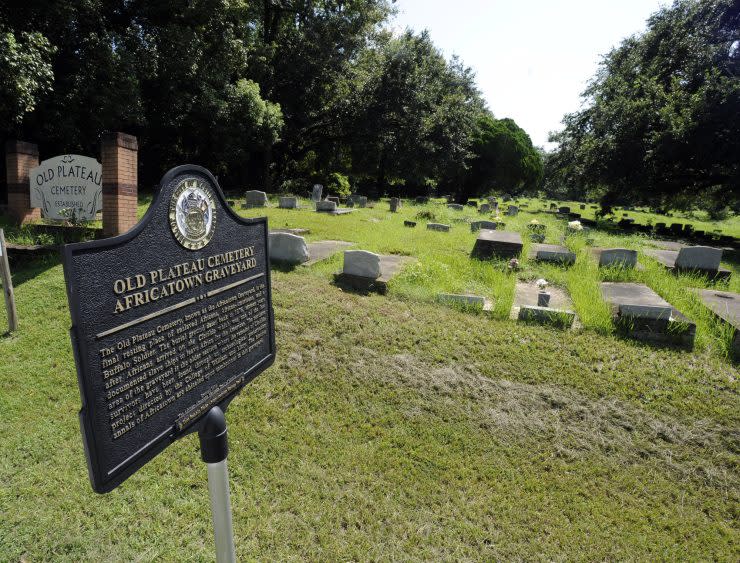
AP Photo/Jay Reeves
After more than a century and a half of futile search, the Clotilda was finally discovered in 2019, in 20-feet of water where it had been scuttled in 1860 to hide evidence of the importation of slaves (as of 1818 it was illegal to bring slaves into the U.S.). Evidence in the film suggests descendants of Timothy Meaher, the man who financed the slave capturing expedition, knew about the location of the ship but kept their secret buried.
Brown tells Deadline she’s keeping her fingers crossed for a distribution deal.
“The story of Africatown is very important to me, it’s very personal. Mobile, Alabama is where I grew up,” she says. “I just hope everyone gets to see it. There’s some [audiences] you’ll get because it’s about a quest for a ship. There’s other people you’ll get because they’re interested in the topic of slavery and reparations and where our country is right now. So, the ship’s the hook, but not the heart.”
The American Dream and Other Fairy Tales [Special Screenings]
Abigail Disney, granddaughter of Roy E. Disney, co-founder of The Walt Disney Company, dissects “America’s dysfunctional and unequal economy” in her documentary co-directed with Kathleen Hughes. As a Disney heir, she may be a one-percenter, but she empathizes with the other 99 percent in their struggle to make ends meet in a system where CEOs earn 800 times what the average worker takes home.

Sundance Institute/Fork Films
Disney interviews multiple Disneyland employees (“cast members,” in Mouse parlance), including married couple Trina and Ralph, who have several children and can’t afford to buy a house or rent an apartment.
“Even with both of us working full time, we still fall below the poverty levels,” says Ralph. “We have cast members that have to make decisions between [paying for] medications or food.”
LAST FLIGHT HOME [Special Screenings]
Director Ondi Timoner returns to the festival with one of the most poignant of films imaginable. It follows her father, Eli Timoner, a man Ondi describes as “my best friend, my greatest pal and champion,” in the last weeks of his life.

Interloper Films
In the 1970s the elder Timoner founded Air Florida, the fastest growing airline in the country at the time, but he suffered a debilitating stroke at age 53. Last January, after decades of ill health, he made the conscious decision to end his life through assisted suicide. With her father’s blessing and support, Ondi documented the experience as the family gathered around their dad for his final journey.
“I did not think I was making a film during those precious final weeks,” Timoner writes in a director’s statement. “I was just desperate to bottle up my wonderful father somehow, and this was the only way I knew how…”
Timoner is a two-time winner of the festival’s Grand Jury Prize for documentary.
“Returning to Sundance after 12 years feels like a homecoming,” Timoner tells Deadline, “to a place that kicked off my career with Dig! in 2004 and then We Live in Public in 2009, but most importantly nurtured my development as an artist at the Institute’s labs with Mapplethorpe,” (her 2018 scripted feature on the renowned photographer).
She adds, “My family and I are thrilled to be launching my most personal and profound film together, which really brings my father’s incredible legacy of loving kindness as an offering. From the response it’s already receiving and exciting plans set for the fall, we are very optimistic for the life of LAST FLIGHT HOME and confident we will find the perfect distribution partners to help us bring it to the world.”
To the End [Premieres]
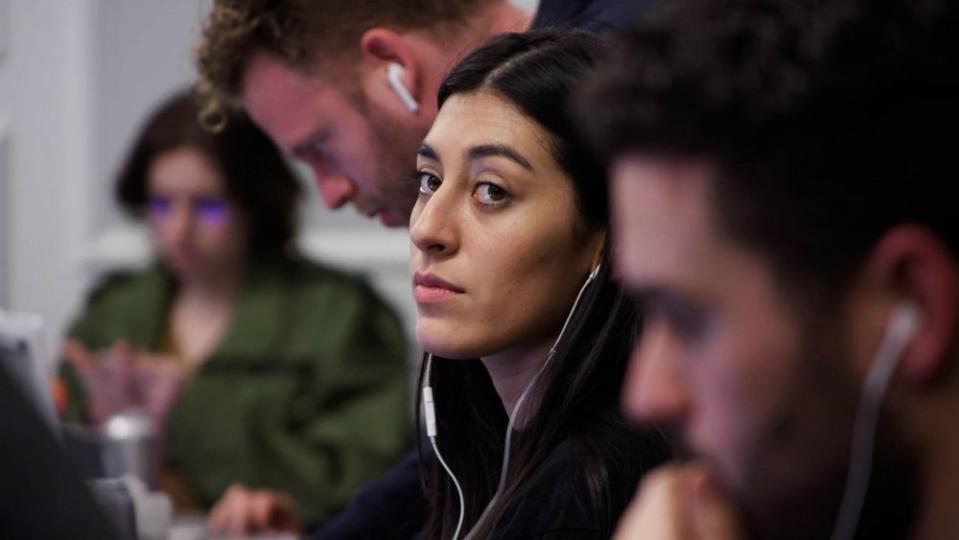
Courtesy of Sundance Institute
Rachel Lears’ film constitutes a kind of sequel to Knock Down the House, her stirring 2019 documentary that followed Alexandria Ocasio-Cortez and other progressive women candidates who sought to unseat entrenched Democrats in Congress. To the End picks up with AOC now in the House, as she and progressive activists struggle to enact the Green New Deal.
Their effort to tug the party leftward meets stiff resistance in the form of “centrist” Democrats, particularly Sen. Joe Manchin of West Virginia. He single-handedly scuttles action on climate change, refusing to support President Biden’s Build Back Better plan.
As Alexandra Rojas of the progressive group Justice Democrats says in the film, “We’re in the battle for the soul of the Democratic Party.”
All That Breathes [World Cinema Documentary Competition]

Sundance Institute
A visually stunning film directed by Shaunak Sen that introduces viewers to two brothers in Delhi, India, dedicated to protecting the black kite, a bird of prey threatened by the city’s pollution and other hazards. Over the course of 20 years, the brothers estimate they have treated 20,000 of the injured birds, and they feed them at their own expense—going through 500 pounds of meat a month.
One of the film subjects says of seeing a black kite close up for the first time: “It looked like a furious reptile from another planet… Their hunger is insatiable.”
TikTok, Boom [U.S. Documentary Competition]

Courtesy of Campfire Studios
Director Shalini Kantayya follows up her highly-regarded 2020 documentary Coded Bias with a film about the enormously popular social media video site TikTok. The festival says, “This film seeks to answer, ‘why is an app, best known for people dancing, the target of so much controversy?’”
An ensemble cast of Gen Z TikTok users, including Deja Foxx, help tell the story of the Chinese-owned platform’s success.
The TikTok app has been downloaded 2.6 billion times, suggesting there may be a readymade audience for Kantayya’s documentary.
My Old School [Premieres]
In the early 1990s director Jono McLeod attended secondary school at the Bearsden Academy in an affluent section of Glasgow, Scotland, where he came into contact with an unusual fellow student, 16-year-old Brandon Lee.
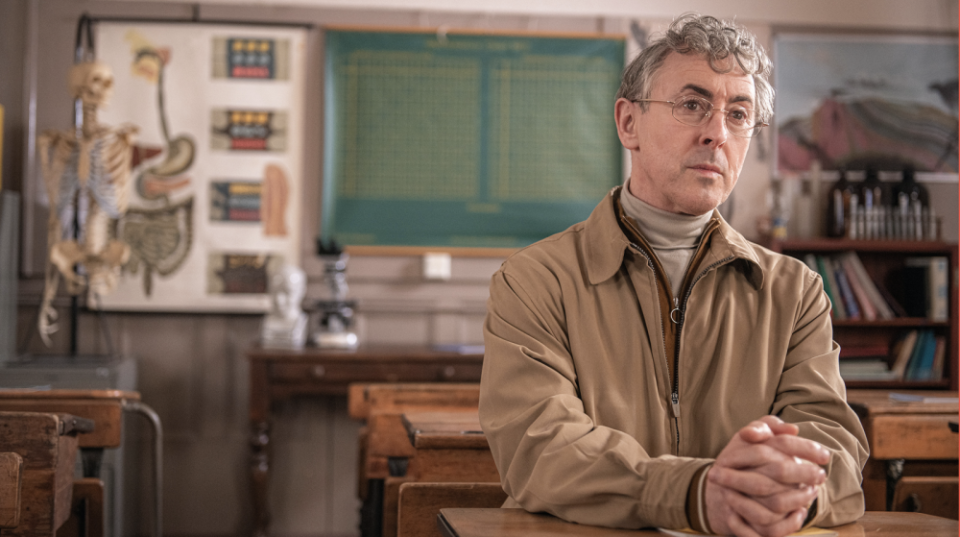
Courtesy of Tommy Ga-Ken Wan
“What followed over the next two years would become the stuff of legends,” notes a synopsis of the film. “The preternaturally bright student [Lee] surprised teachers by blazing toward his goal of entering medical school, displaying a wealth of knowledge beyond his years… He took bullied students under his wing, introduced classmates to seminal retro bands, and even starred in the school’s production of South Pacific. But then his unbelievable secret was revealed.”
Actor Alan Cumming helps bring the supposed teenager to life in dramatizations. McLeod writes in a director’s statement, “My Old School is a documentary which finally reveals the truth behind one of the most incredible stories of the past 30 years. Featuring interviews with my old classmates and teachers, together we tell how a 32-year-old man tricked his way into our school – and, for the first time, how Brandon Lee’s true identity was revealed.”
Mija [Next]
Doris Muñoz, the subject of Mija, grew up the daughter of undocumented immigrants in the Los Angeles area. She found success as a music manager in her mid-20s, helping launch the career of recording artist Cuco, but concern for her parents’ immigration status has remained a constant worry.
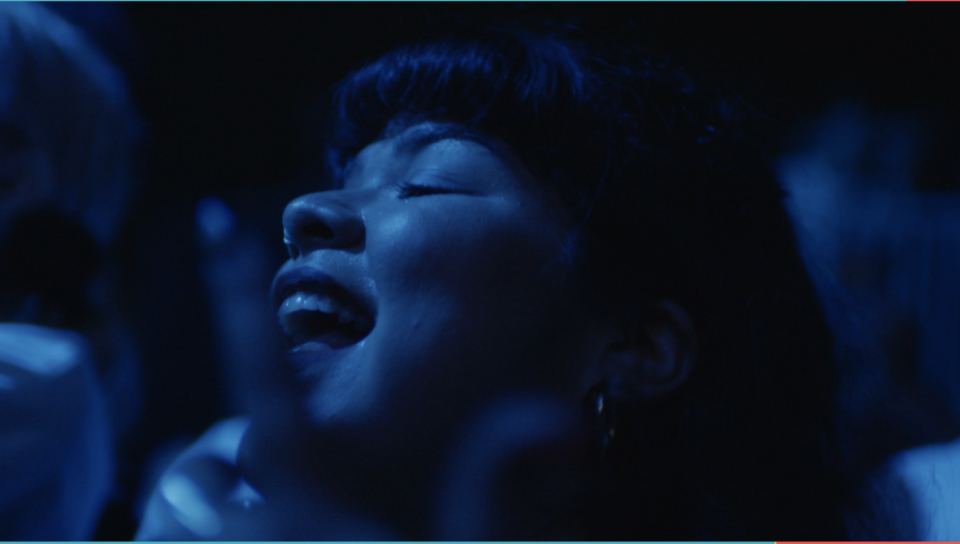
Sundance Institute
“Mija is my first feature film,” comments director Isabel Castro. “I have been covering immigration and civil rights for over a decade, but was grappling with how to tell a different kind of immigration story, one that doesn’t reduce the experience to one only of trauma and loss. I wanted to show the full range of emotions that come along with immigrating to the United States – everything from guilt to joy.”
Submarine, UTA Independent Film Group, and Cinetic Media are among the sales agents working tirelessly to make sure unattached films acquire distribution deals.
Best of Deadline
Cancellations/Renewals Scorecard: TV Shows Ended Or Continuing In 2021-22 Season
New On Prime Video For January 2022: Daily Listings For Streaming TV, Movies & More
Winter Premiere Dates For New & Returning Series On Broadcast, Cable & Streaming
Sign up for Deadline's Newsletter. For the latest news, follow us on Facebook, Twitter, and Instagram.

